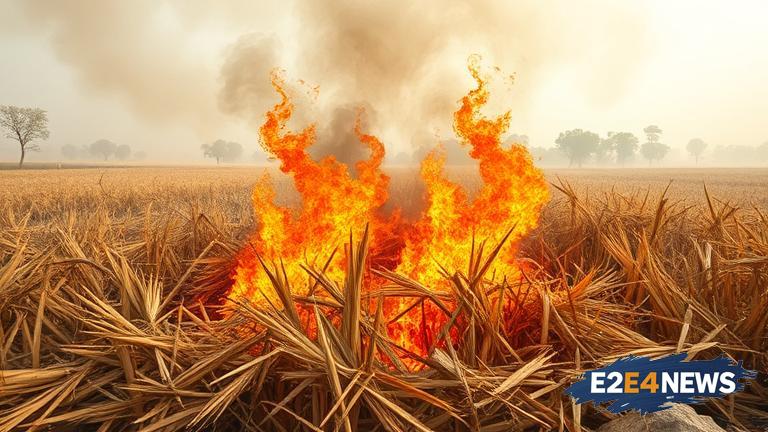The Punjab government has rolled out a new strategy to tackle the issue of stubble burning, a practice that has been a major environmental concern in the state. The government has been working tirelessly to find a solution to this problem, which not only affects the environment but also the health of the people. Stubble burning has been a longstanding issue in Punjab, with farmers burning crop residue to clear their fields for the next crop. However, this practice releases toxic pollutants into the air, causing air pollution and respiratory problems. The government has been trying to persuade farmers to adopt alternative methods of managing crop residue, but with limited success. The new strategy includes a slew of measures, such as providing financial incentives to farmers who adopt eco-friendly methods of managing crop residue. The government will also be providing subsidies to farmers who purchase equipment for managing crop residue. Additionally, the government will be setting up a network of custom hiring centers, where farmers can hire equipment for managing crop residue. The government has also announced plans to generate energy from crop residue, which will not only help reduce pollution but also provide a new source of income for farmers. The government has set a target of generating 200 MW of power from crop residue by the end of the year. The new strategy also includes a plan to create a market for crop residue, which will encourage farmers to sell their crop residue instead of burning it. The government has also announced plans to impose penalties on farmers who continue to burn crop residue, despite the availability of alternative methods. The government has also launched a awareness campaign to educate farmers about the harmful effects of stubble burning and the benefits of adopting eco-friendly methods of managing crop residue. The campaign will include advertisements, workshops, and demonstrations, to persuade farmers to adopt alternative methods. The government has also partnered with private companies to provide technology and equipment to farmers for managing crop residue. The government has also announced plans to provide training to farmers on how to manage crop residue in an eco-friendly manner. The new strategy has been welcomed by environmentalists and farmers, who see it as a step in the right direction. However, some farmers have expressed concerns about the cost of implementing the new strategy, and the need for more financial support from the government. The government has assured farmers that it will provide all necessary support to help them adopt eco-friendly methods of managing crop residue. The success of the new strategy will depend on the cooperation of farmers, and the government’s ability to provide effective support and incentives. The government has also announced plans to monitor the implementation of the new strategy, and to take corrective action if necessary. The new strategy is a major step forward in the government’s efforts to combat stubble burning, and to reduce air pollution in the state. The government is confident that the new strategy will be successful, and that it will help to reduce the incidence of stubble burning in the state. The government has also announced plans to review the new strategy regularly, and to make changes as necessary. The new strategy is a major initiative by the government to address the issue of stubble burning, and to promote sustainable agriculture practices in the state.
